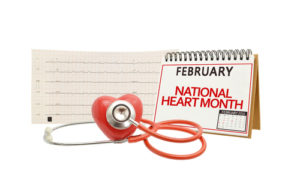
Flu season has officially begun and will continue through February, or maybe even later. Nobody wants to catch this ache-inducing, sneezing-causing, and overall yucky-feeling sickness. While sometimes the flu is unavoidable, there are easy things you can do to reduce your chance of falling ill. Join your dentist in Buckhead in practicing these top tips all flu season long.
Clean & Sanitize
During flu season, it’s wise to clean and sanitize your living and workspace more often than usual. Germs can live on surfaces for quite some time, and all it takes is touching an infected surface to come down with the flu. Make sure to clean the areas you use most often or that are touched by multiple people like the kitchen, bathroom, and conference room tables at work. Don’t forget about the little items like remote controls, toilet handles, doorknobs, and keyboards.
Wash Your Hands
Your dentist in Buckhead and all medical professionals will tell you that washing your hands often is one of the best ways to avoid the flu and the common cold. Scrubbing your mitts with warm water and antibacterial soap is an effective way to remove any germs you may have picked up throughout the day. Cover your palms, fingers, and even fingernails with soapy water after using the restroom, before eating, and after you touch anyone. If you can’t get to a sink right away, an alcohol-based sanitizer can work in a pinch.
Keep Hands Away from the Face
According to the CDC, another common way to transfer germs from person to person or from surface to person is by putting our hands on our face or near our mouths, eyes, or nose. Since these areas of the body contain mucus, anything that gets into them is easily transported into the rest of the body, including germs.
Choose Healthy Meals
While we always recommend trying to eat a well-balanced diet all year round, it can be even more important during flu season. Fueling your body with all of the good stuff it needs to function optimally puts it in good fighting shape if germs do find their way inside. Eat plenty of fresh fruits, vegetables, and lean proteins and avoid sugar as much as you can.
Increase Your Water Intake
Besides eating well, it’s also important to drink a lot of water throughout the day. When a body is properly hydrated, it’s better prepared to fight off anything that may try to make you sick. Follow the 8×8 rule by drinking eight 8-ounce glasses of water every day.
These tips can go a long way in keeping the flu away from you and your family this season. But if you do happen to get sick, the team at our Buckhead dental office recommends treating your symptoms with sugar-free medication to protect your teeth. Also, don’t forget to swap out your toothbrush for a new one after any illness.














